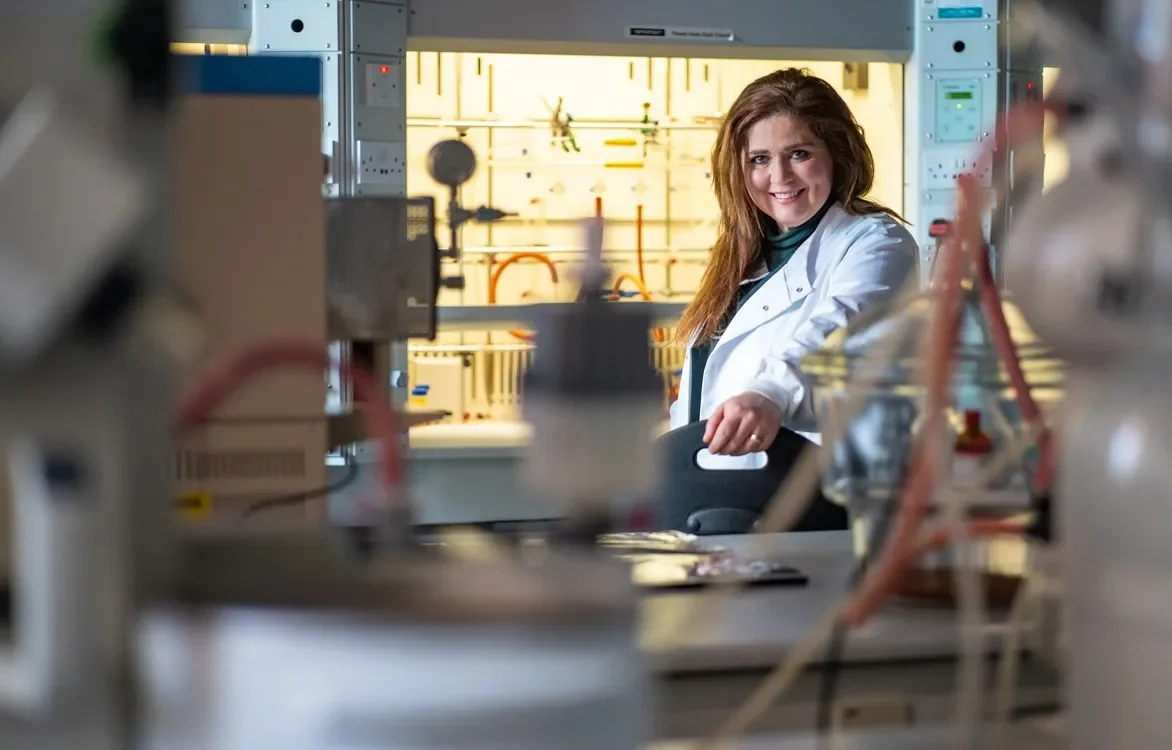

Photo: Chris Maddaloni for Nature
Drug-resistant pancreatic cancer cells successfully treated in the Prof Silvia Giordani's lab
Researchers, led by Professor Silvia Giordani, School of Chemical Sciences, Dublin City University, have found a way to more precisely deliver medicines to pancreatic ductal adenocarcinoma (PDAC) cells, a cancer cell type known for its aggression and its resistance to treatments.
“Despite a less common occurrence, with 4 or 5 cases per 100,000 people, PDAC poses a significant global challenge due to its typically late diagnosis and poor response to existing therapies,” said Prof Giordani. “The 5 year survival rate is only 8% and it is the 4th most frequent cause of cancer-related premature mortality.”
The new delivery system is based on ‘carbon-nano onions’. These are tiny spheres, made of carbon, with several layers, just like an onion. Each sphere is incredibly small - nanosized. It would take over 12,000 spheres, standing side-by-side to span the width of a single human hair.
“Carbon nano-onions are great for drug delivery because of their size and structure,” said Prof Giordani. “Their surface can be loaded with medication, and their small size lets them travel easily within the body to reach specific areas. Also, they are biocompatible, meaning they can work well inside the body without causing harm or being rejected.”
“The traditional methods of taking medicine, like pills and injections, can be imprecise. They often affect the whole body instead of just the area needing treatment, which can cause side effects. Our improved drug delivery methods target specific areas of the body more accurately, reducing side effects and potentially making treatments more effective.”
The success of the carbon nano-onion delivery method, opens the door for a similar approach to be used to treat other drug resistant cancers, or other difficult-to-treat diseases. The strength of this method is that drugs can be delivered directly to cells and bypass the resistance mechanisms.
“We can make an analogy that carbon nano-onions act as vehicles that deliver therapeutic cargo. By carefully adjusting their surface chemistry, we can direct them towards a specific target; much like inputting ‘specific type of infected cell’ into their GPS coordinates, we can precisely target various diseases, not just cancer,” said Prof Giordani.
The findings were published in the science journal, Journal of Colloid And Interface Science.
